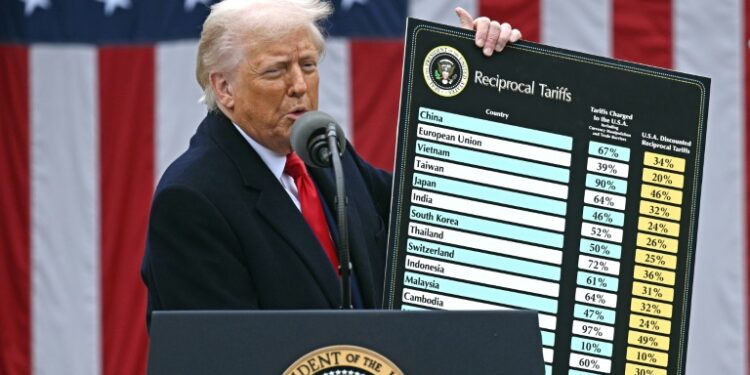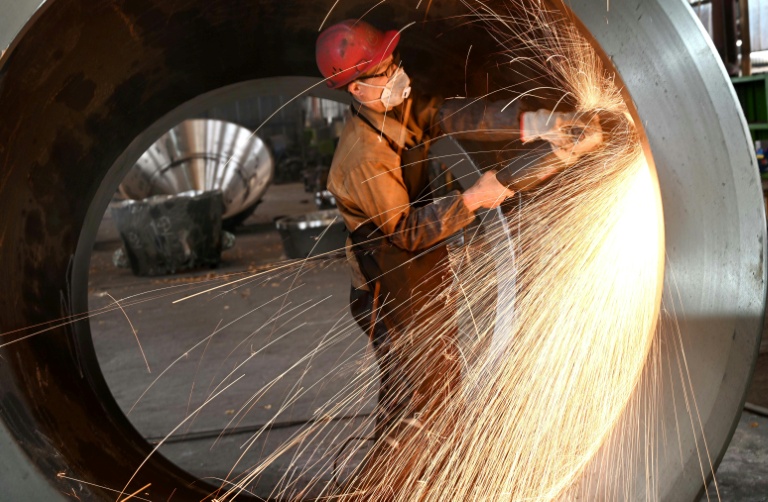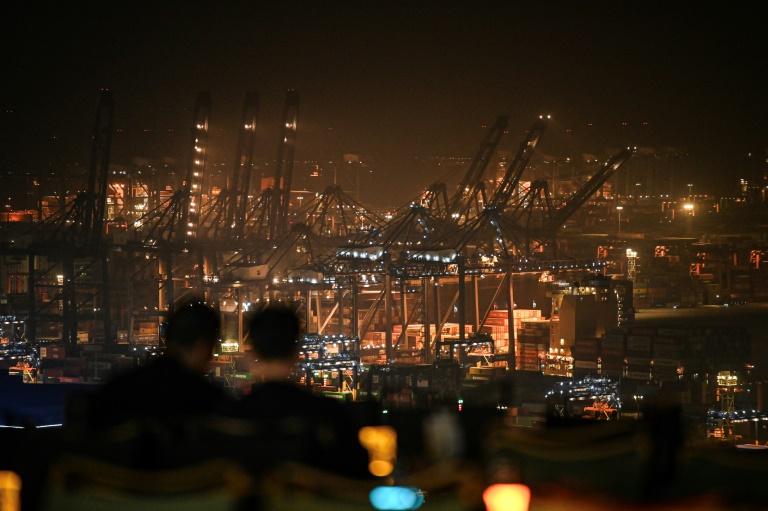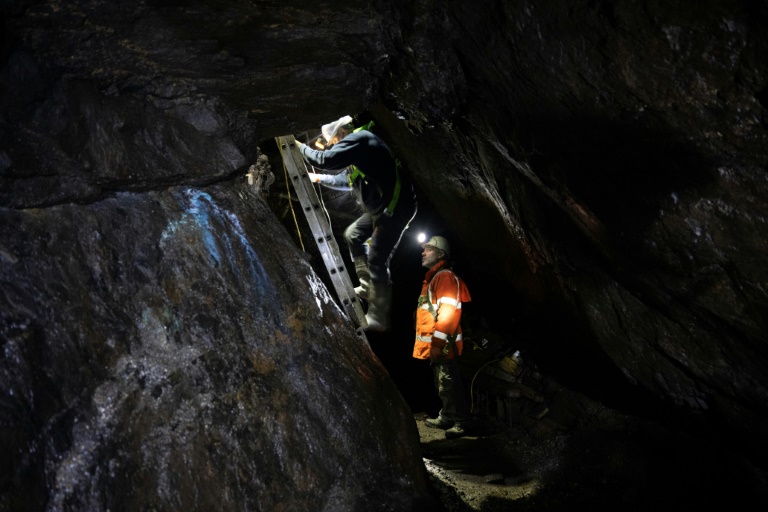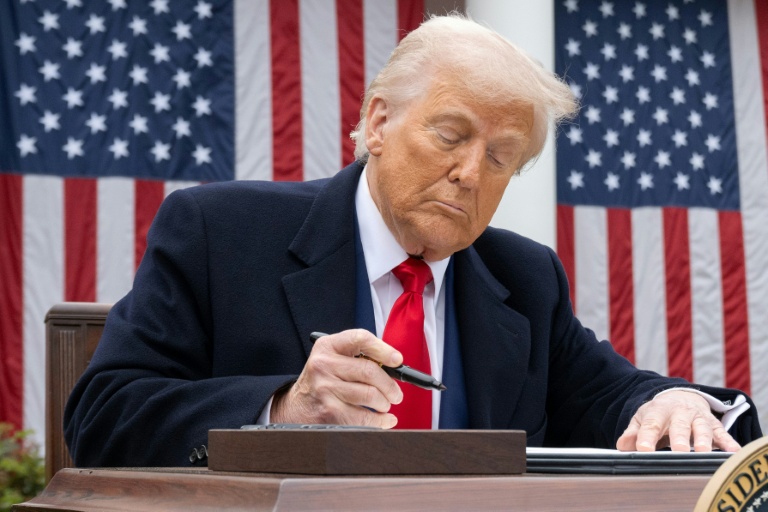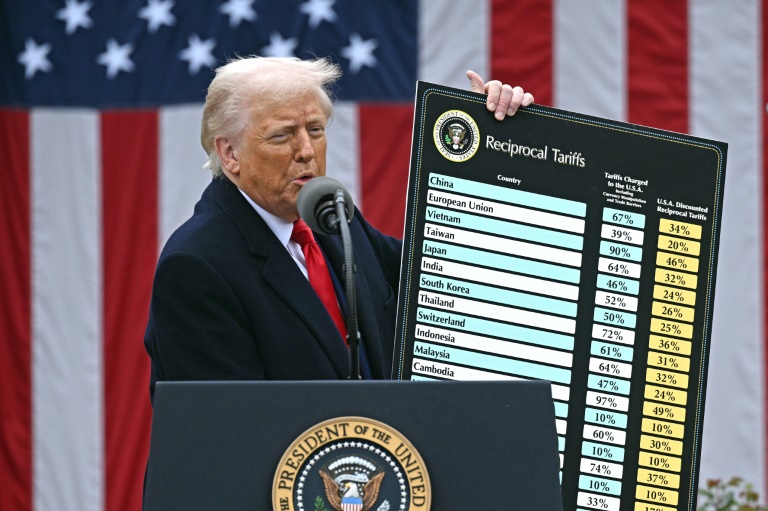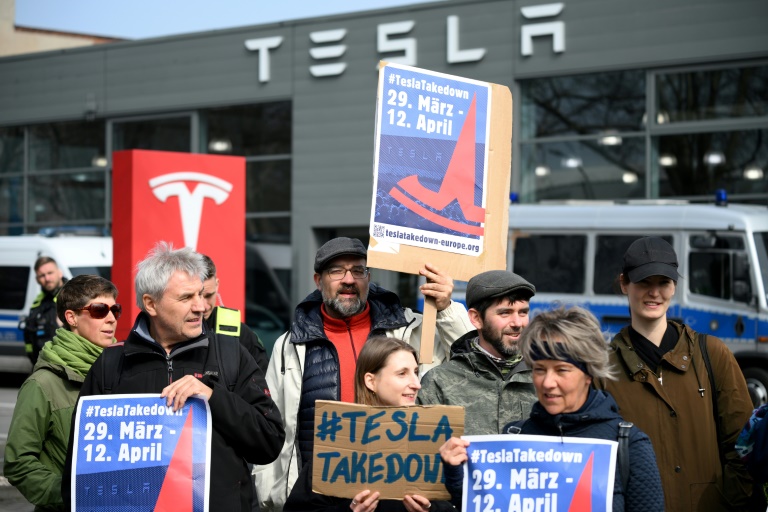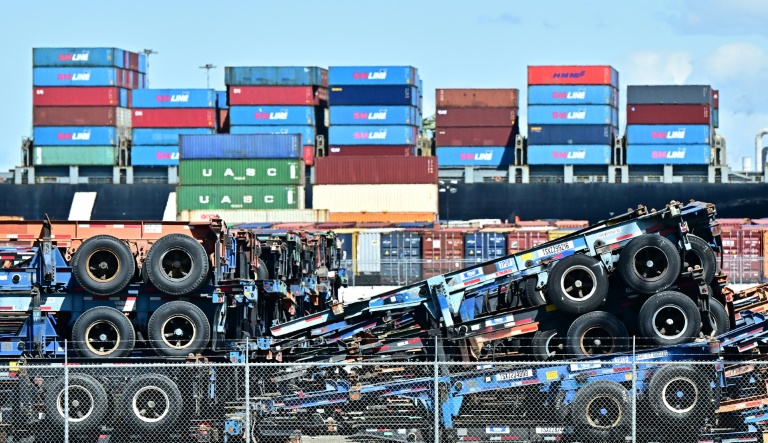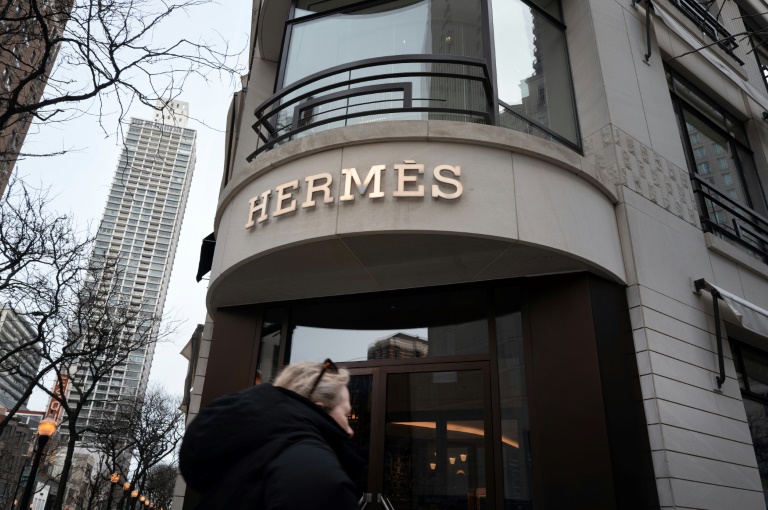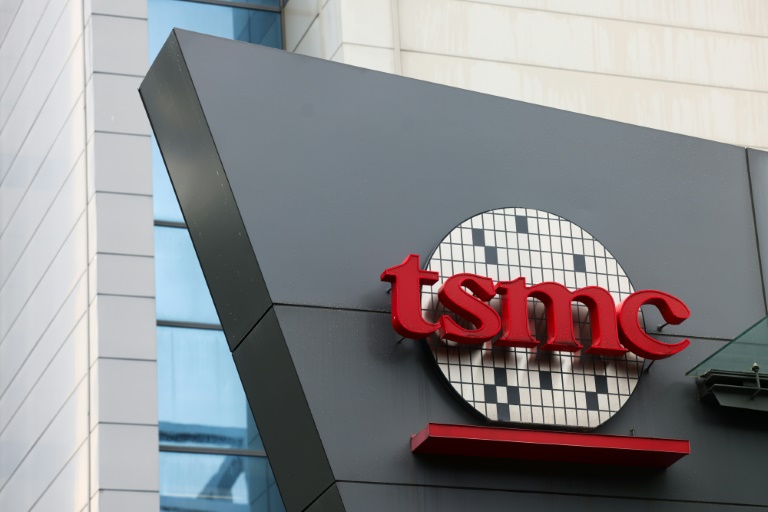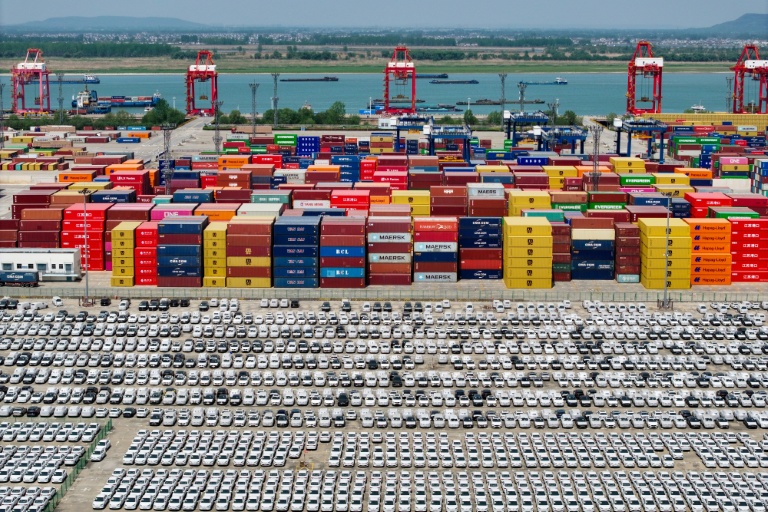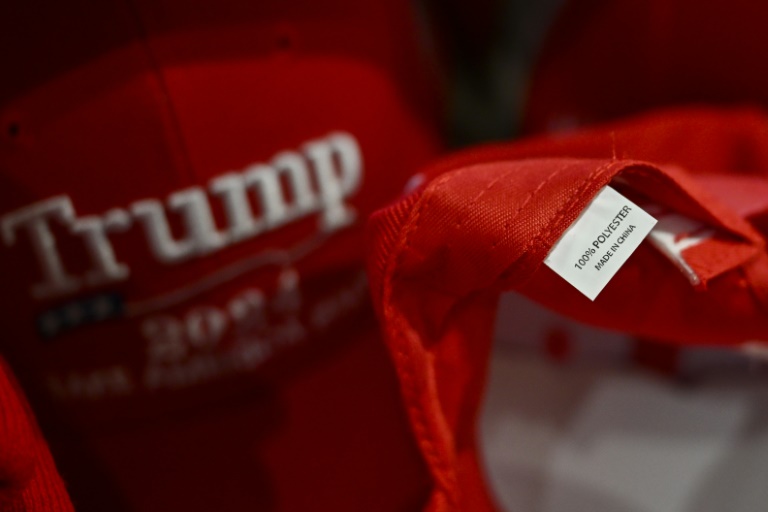Paris (AFP) – Countries vowed Thursday to hit back at US President Donald Trump’s global tariffs onslaught but left the door open to negotiations, as markets tumbled over fears his trade war would damage the world economy. Trump spared almost no nation on his “Liberation Day,” hitting friends and foes alike and reserving some of the harshest tariffs for major trade partners, including the European Union and China. Holding up a chart of the sweeping measures in the White House Rose Garden on Wednesday, Trump called it “our declaration of economic independence.”
“For decades, our country has been looted, pillaged, raped and plundered by nations near and far, both friend and foe alike,” Trump said, promising the move would restore a lost economic “Golden Age.” Nations around the world reacted swiftly, with China vowing “countermeasures” while France and Germany warned that the EU could hit US tech firms operating in Europe with a tax. EU chief Ursula von der Leyen vowed Europe was “prepared to respond” to the tariffs, calling them a “major blow to the world economy.” But the 27-nation EU and other countries also showed willingness to negotiate, while Beijing said it was “maintaining communication” with Washington over trade issues.
The tariff announcements rattled stock markets while safe haven gold hit a new record high and the dollar slumped against other major currencies. In Asia, Tokyo’s Nikkei closed 2.8 percent lower after paring back bigger losses. Hanoi shares dropped more than seven percent after Vietnam was targeted with tariffs of 46 percent. Europe’s main stock markets were all in the red nearing midday trading, while US futures plummeted. “Stocks are down around the world but these are not traditional panic moves, suggesting that there is still some expectation that deals can be cut to reduce some of the impact from tariffs,” said Kathleen Brooks, research director at XTB trading platform.
Trump reserved some of the heaviest blows for what he called “nations that treat us badly.” That included an additional 34 percent on goods from China — bringing the new added tariff rate there to 54 percent. The figure for the European Union was 20 percent, and 24 percent on Japan, whose trade minister called the tariffs “extremely regrettable.” For the rest, Trump said he would impose a “baseline” tariff of 10 percent, including another key ally, Britain, which will come into effect on Saturday while the higher duties will kick in on April 9. Separate tariffs of 25 percent on all foreign-made cars and light trucks also went into effect, with auto parts due to be hit by May 3.
US Treasury Secretary Scott Bessent warned against countermeasures, saying on Fox News: “If you retaliate, there will be escalation.” Germany said “everything was on the table” as it joined France in saying the EU could tax US tech giants. But German Chancellor Olaf Scholz, whose country is a major exporter of cars to the United States, said Europe was open to further talks to end the trade war. He called the US tariffs “fundamentally wrong.” Britain escaped relatively lightly after a diplomatic offensive, though Prime Minister Keir Starmer warned there would still be an “economic impact” from the 10 percent tariff on UK goods. Australian Prime Minister Anthony Albanese said the tariffs are “not the act of a friend,” but he said his country, which was also hit with the lower end of duties, would not retaliate.
Some of the worst-hit trading partners were in Asia, including 49 percent for Cambodia, 46 percent for Vietnam, and 44 percent for military-ruled Myanmar, recently hit by a devastating earthquake. Russia was not affected because it is already facing sanctions over the Ukraine war “which preclude any meaningful trade,” a White House official said. Certain goods like copper, pharmaceuticals, semiconductors, lumber, and gold will not be subject to the tariffs. Canada and Mexico are not affected by the new levies as Trump has already punished them for what he says is their failure to stymie drug trafficking and illegal immigration. Canadian Prime Minister Mark Carney vowed to “fight” the existing levies.
Trump’s announcement is the culmination of a long love affair with tariffs, which he has seen for decades as a cure-all for America’s trade imbalances and economic ills. A hand-picked audience of cabinet members, as well as workers in hard hats from industries including steel, oil, and gas, whooped and cheered as Trump promised tariffs would “make America wealthy again.” Trump labelled Wednesday’s tariffs “reciprocal,” but many experts say his administration’s estimates for levies placed on US imports by other countries are wildly exaggerated. The US president had telegraphed the move for weeks, sparking fears of a recession at home as costs are passed on to domestic consumers. French Prime Minister Francois Bayrou said the tariffs were a “catastrophe” for the world economy but also “for the United States and for American citizens.”
© 2024 AFP

